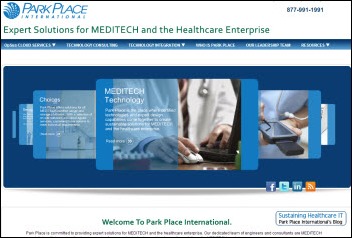Stage 2 of the EHR Incentive Program is about to heat up healthcare, imposing more stringent requirements on providers and vendors alike. With the top seat at the ONC still open and the 2014 certification process creeping along, there are deep concerns within the industry about the feasibility of proceeding with Stage 2 on the current timetable. Lauren Fifield, Senior Health Policy Advisor at Practice Fusion, sat down with EHRintelligence to discuss how the upcoming changes will impact the EHR market as we move forward with meaningful use.
What are your bets for the new National Coordinator?
I guess it’s sort of defaulted to Jacob Reider, following David Muntz’s decision to leave as well. Jacob is one of my bets. He comes from the private sector, so he understands what it means to be an EHR vendor. He’s a provider, and he’s done pretty well in negotiating the public sector and driving change. So he’s definitely a top pick. I’m a huge fan of Dr. Theresa Cullen. She started at the Indian Health Service and is now at the VA, running the health IT division.
Some of the others may be some of the more well-known figures in health IT, like John Halamka or Micky Tripathi. I think they could do well, but there’s something to be said for someone who’s had experience navigating the public sector, because it moves differently. You need someone who’s been in the field, boots on the ground, and honestly, is willing to sign up for a few years of punishment. It’ll be interesting to see.
Do you think there will be a delay to Stage 2 of meaningful use?
I don’t think there will be a delay. I do think there’s a percentage chance – not a hundred percent, but there is a chance that there will be an extension of the reporting for year one of Stage 2. Providers might be able to attest into 2015, so that those providers who are ready don’t get penalized, kind of, for being ready, and there isn’t that sort of industry pull-back like we saw with ICD-10. Folks had invested money, and vendors had gotten onto this “should we, shouldn’t we” track. I think there’s probably a 30 or 40 percent chance of an extension.
The 2014 meaningful use certification process has been moving very slowly. How will that affect the market as we move into Stage 2?
I think only about 10 percent of vendors have gotten certified for Stage 2. That’s not a terrible surprise, all things considered. Stage 2 definitely ups the ante, and the 2014 requirements are pretty significant. I think a lot of vendors are trying to also develop things in parallel to keep up with different payment models, and ACOs, and different initiatives like ICD-10. They’re trying to develop data analytics platforms and things like that. So I’m not terribly surprised. Come January or February, I think it’ll be more of a tell-tale sign.
But I think that the fact that some vendors win and lose is also a good thing for the market. For Stage 1, only about 50% of vendors had one or more attestations, and 50% of vendors had no one. It’ll be an interesting question to see if what’s good for the market will also be good for providers. Meaningful use has done an amazing thing when it comes to standards and forming consensus around the need for exchange and patient engagement, but I do think that having the government create a set of requirements has driven a wedge between vendors and users.
Other markets run on the fact that users need X, and good vendors create X. The better value they create, the better it is for the market. But when the government is saying “user needs X”, things get a little bit distorted. I don’t know what kind of market the EHR field will be as long as meaningful use is present.
The EHR replacement market keeps growing. What’s your advice to providers who are looking for a replacement system?
The replacement trend is a good one, in that hopefully it means that providers have bought on to use of the EHR enough so that they’re actually considering business drivers which maybe the first time around they didn’t really consider. So I think it can be a good thing. There will definitely be some logistics to figure out in terms of transferring large amounts of complex data to a new system, but if it means that physicians are getting to address business needs and clinical needs better, then I think it’s great.
You need to be thinking like a business person when you’re signing on the dotted line. Or you need to make sure that part of your practice team includes someone that’s going to handle that business side, and can manage things like contracts and acquisition of tools and use of technology. I get it that a doctor doesn’t want to read a contract. It’s not their skill set. But you need to make sure that someone is doing that.


























